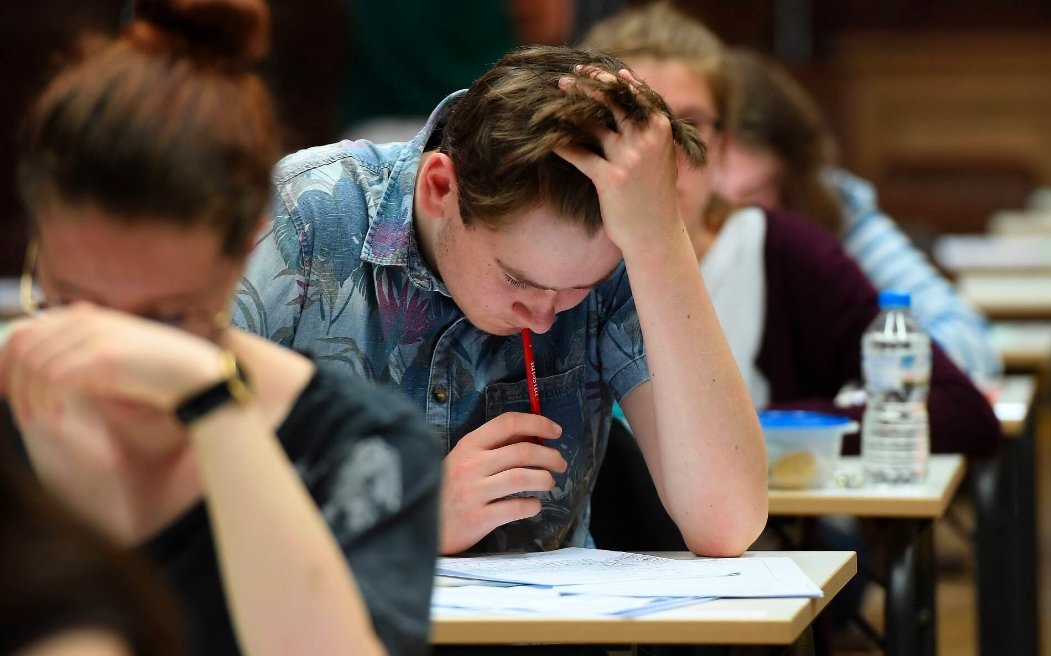England’s education minister has been criticised for failing to disclose that some schools in England were excluded from the Programme for International Student Assessment (PISA) tests in 2018, which may have inflated the country’s performance in the global rankings.
What are the PISA tests?
The PISA tests are conducted every three years by the Organisation for Economic Co-operation and Development (OECD) to measure the skills and knowledge of 15-year-old students in reading, mathematics, science, and global competence. The tests are designed to assess how well students can apply their learning to real-life situations and problems.
The PISA tests are widely regarded as a benchmark for comparing the quality and equity of education systems across the world. More than 80 countries and economies participated in the PISA 2018 tests, which involved about 600,000 students.
How did England cheat in the PISA tests?
According to a report by The National, a Scottish newspaper, England’s education minister, Gavin Williamson, did not mention in his official statement that some schools in England were excluded from the PISA tests in 2018, which may have boosted the country’s scores and rankings.

The report claims that the National Foundation for Educational Research (NFER), which administered the PISA tests in England, removed 13 schools from the sample because they were classified as “special schools” or “pupil referral units”, which cater to students with special educational needs or behavioural issues. These schools were replaced by other schools that were more likely to have higher-achieving students.
The report also alleges that the NFER did not follow the OECD’s guidelines for sampling schools, which require that all schools that are eligible for the tests should have an equal chance of being selected. The NFER used a different method of sampling schools, which may have resulted in a biased and unrepresentative sample.
The report cites an email from the NFER to the OECD, which states that the NFER “applied an alternative sampling methodology as the one proposed by the OECD did not meet the Department for Education’s requirements”.
The report also quotes an unnamed source from the OECD, who confirmed that the NFER did not follow the OECD’s sampling methodology, and that the OECD was not aware of the exclusion of some schools from the PISA tests in England.
What was the impact of the cheating on the PISA rankings?
The report suggests that the cheating may have inflated England’s scores and rankings in the PISA tests, which were released in December 2019. England ranked 14th in reading, 14th in science, and 18th in mathematics among the participating countries and economies. England also ranked 8th in global competence, which was assessed for the first time in 2018.
The report claims that the cheating may have given England an unfair advantage over other countries, especially Scotland, which ranked 23rd in reading, 19th in science, and 24th in mathematics. Scotland also ranked 28th in global competence.
The report argues that the cheating may have distorted the public perception of the quality and equity of education in England, and may have misled policymakers and educators who use the PISA results to inform their decisions and practices.
What are the reactions to the cheating scandal?
The cheating scandal has sparked outrage and condemnation from various stakeholders and commentators, who have called for an investigation and accountability from the UK government and the NFER.
The Scottish education secretary, Shirley-Anne Somerville, said that the cheating was “shocking” and “unacceptable”, and that it undermined the credibility and validity of the PISA tests. She said that she had written to the UK education secretary, Nadhim Zahawi, to demand an explanation and an apology.
The Welsh education minister, Jeremy Miles, said that he was “deeply concerned” by the cheating, and that he had asked the OECD to review the PISA results for the UK. He said that he expected the UK government and the NFER to cooperate fully with the OECD’s investigation.
The Northern Irish education minister, Michelle McIlveen, said that she was “appalled” by the cheating, and that she had instructed her officials to contact the OECD and the NFER to seek clarification and assurance. She said that she would not tolerate any manipulation or misrepresentation of the PISA results.
The OECD’s director for education and skills, Andreas Schleicher, said that he was “surprised” and “disappointed” by the cheating, and that he had asked the NFER to provide a detailed report on the sampling methodology and the exclusion of some schools from the PISA tests in England. He said that the OECD would examine the report and decide whether to adjust or invalidate the PISA results for England.
The NFER’s chief executive, Carole Willis, said that she was “sorry” for the confusion and controversy caused by the cheating, and that she had apologised to the OECD and the UK government. She said that the NFER followed the instructions and specifications of the Department for Education, and that the NFER did not intend to mislead or deceive anyone.
The UK education secretary, Nadhim Zahawi, said that he was “concerned” and “dismayed” by the cheating, and that he had ordered an independent inquiry into the matter. He said that he would cooperate fully with the OECD’s investigation, and that he would take appropriate action if any wrongdoing or malpractice was found.


















